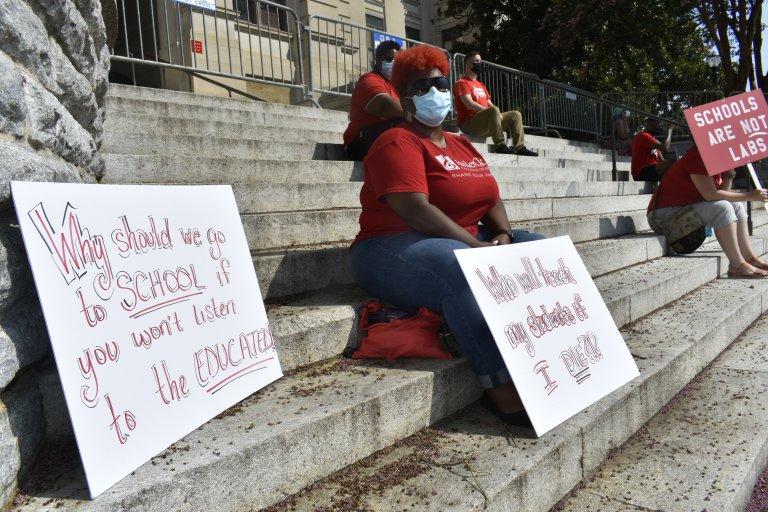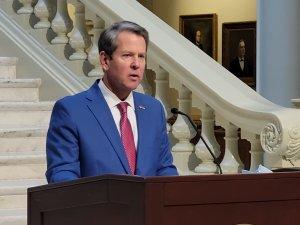
Caption
Cobb County teacher Chantae Pittman took part in a school reopening protest at the Capitol in July. She's relieved Georgia expanded vaccine eligibility to include teachers, but she already made an appointment in Alabama.
Credit: Ross Williams/Georgia Recorder


